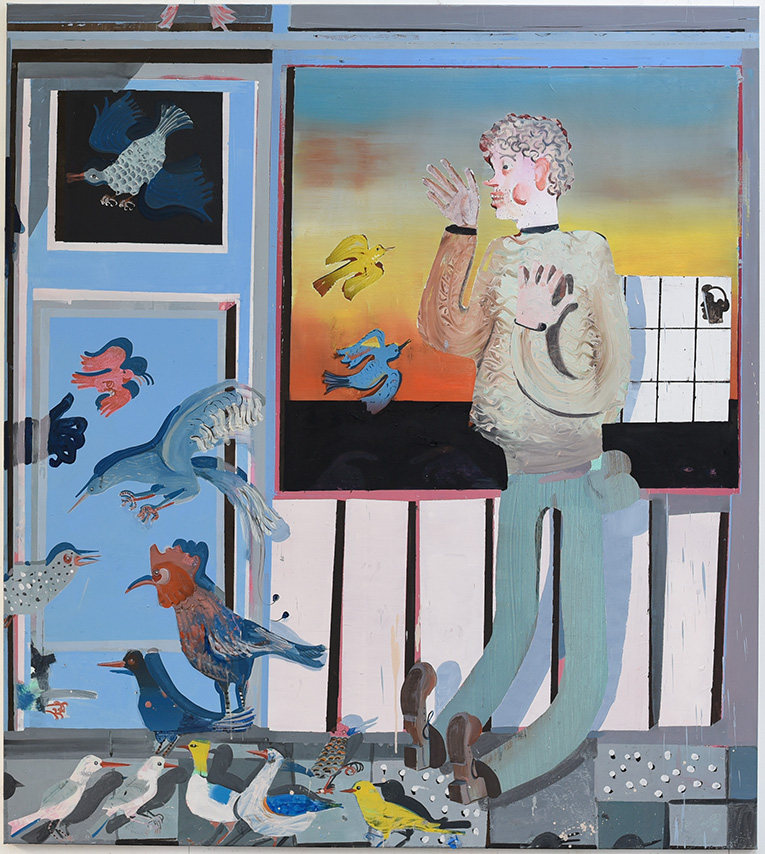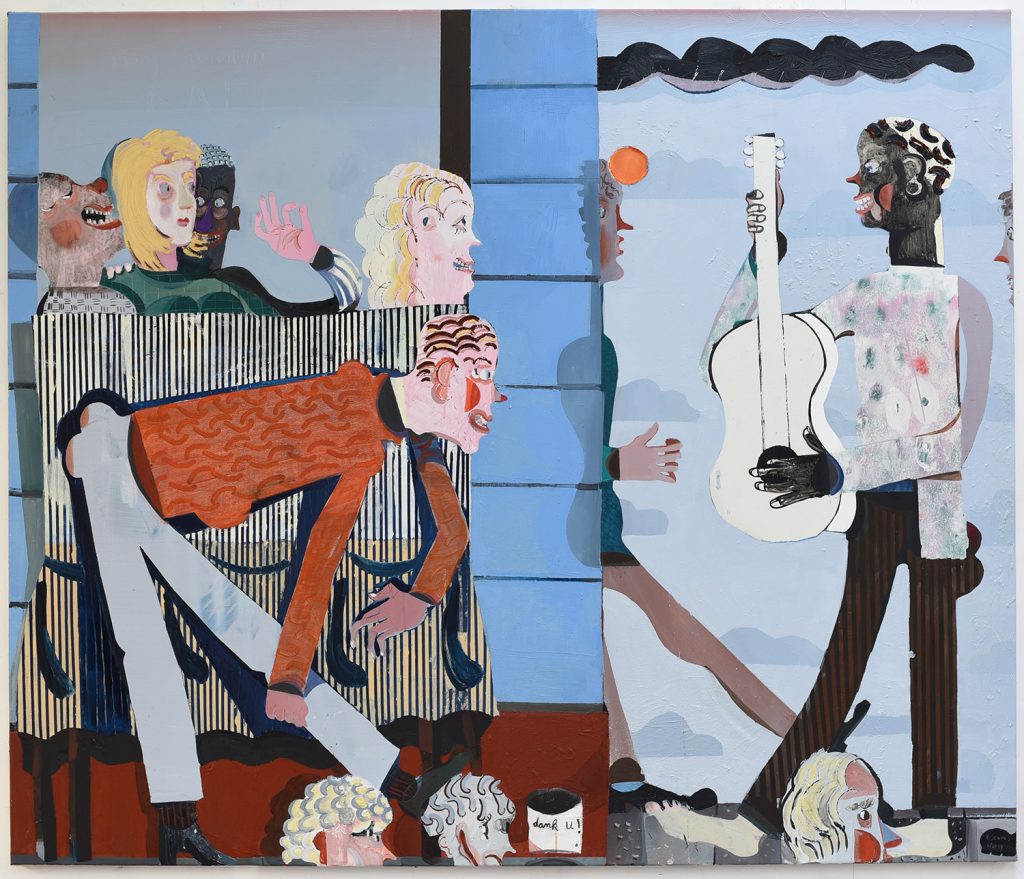Contemporary artist Pieter Jennes paints chiefly to entertain himself and others, a simple almost Zen-like reason.
As an artist, I’m not afraid to fish in the big pool of art history. I’m well aware of my predecessors and their legacy but nothing in this studio is more sacred than the candy I’m currently eating. For my work, everything is usable. From the Moroccan tearoom around the corner to the love life of my sister-in-law. Eventually, everything is an excuse to paint.

How did your tryst with art begin?
From a young age I have been struggling with the correct use of language and grammar. But in art there are no linguistic rules. So, the artworld became my safe place where these flaws were never pointed out by others. I could create my own set of rules.
I have always been a diligent draftsman. So, my parents never objected to me pursuing a career in the arts. I obtained my masters degree in painting at the Royal Academy of Antwerp. Subsequently, I did a post-graduate in curatorial studies to be able to frame my work theoretically.
Tell us about the evolution of your practice over the years.
When I was a teenager I was influenced by the films of director David Lynch. I read that he actually started from painting. That’s the reason I chose to study painting. However, I’m yet to make films.
What were your biggest lessons and hiccups along the way? Which is the most memorable moment?
When I graduated I realised that nobody was waiting for me. I took a full-time job in a grocery store to pay the bills, which became a very stressful situation as I was combining this with painting. After six years of painting in invisibility, free internships and many jobs, I was put in the spotlight by a Tom Volkaert, an artist I had befriended. From then on, things evolved rapidly. I received various offers from collectors, galleries and art schools. In one year my life changed immensely. The thing that made me the happiest was being able to move to a studio with heating.
What inspires you? Take us through your process and continuous frameworks of reference.
As an artist, I’m not afraid to fish in the big pool of art history. I’m well aware of my predecessors and their legacy but nothing in this studio is more sacred than the candy I’m currently eating. For my work, everything is usable. From the Moroccan tearoom around the corner to the love life of my sister-in-law. Eventually, everything is an excuse to paint.
What is the primary role of an artist? How do you describe yourself in the context of challenging people’s perspectives via your work and art?
I express myself through paint ultimately to entertain myself and others. This might not be the most critical approach. But for me, artists and making art make life worth living.
How do you balance art and life?
I’m not sure yet. I’m still figuring this out. I don’t think there will ever be a balance. I try to live as truthfully as I can.
How does your audience interact and react to your work?
There is no such thing as one truth. The viewer might add personal context when interpreting my work. I respect that.
Contemporary artist Pieter Jennes
What are you looking for when you look at other artists’ work? Who are your maestros?
At the moment I’m obsessed with the subtle drawings of Dutch artist Henk Visk, the monumental paintings of Gommaar Gilliams and the tactility of Carole Vanderlinden.
How does your interaction with a curator, gallery or client evolve? How do you feel about commissions?
I’m working with Gallery Sofie Van de Velde in Antwerp, Belgium. A collaboration should be built on mutual trust and understanding. It’s a relief when a gallery understands what you want to do and gives you the freedom to actually pursue this.
What are you working on now? What’s coming next season?
I find inspiration in the district I live in. It’s a neighborhood with many small shops, snack-bars, telephone shops, African hairdressers, etc. The results will be shown in various art fairs and solo and group exhibitions in Belgium, The Netherlands, The UK, South-Africa, etc.
Before you go – you might like to browse our Artist Interviews. Interviews of artists and outliers on how to be an artist. Contemporary artists on the source of their creative inspiration.c
